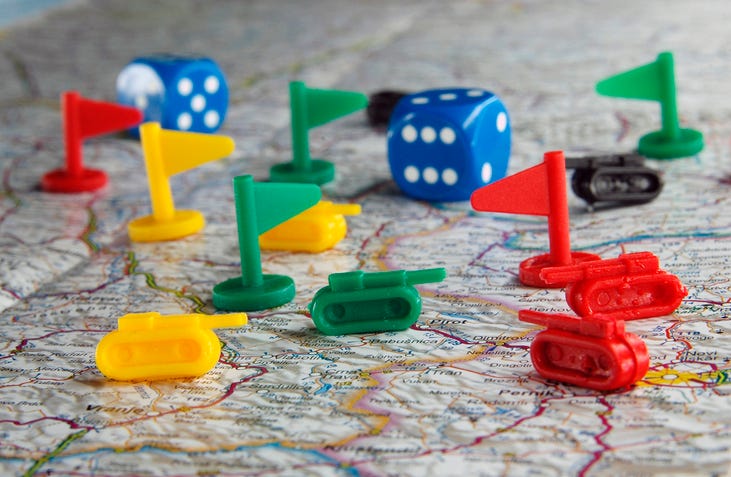Playing War to Win the Next Big One
How wargaming, in all of its variety, can help the military prepare and win the next big war…
I have been to hell ... and it's full of bureaucrats masquerading as wargamers. —Stephen Downes Martin, A Fellow of the Naval War College
TLDR: Wargames provide military and academic practitioners an opportunity to tackle big problems and big ideas in an often low-stakes environment where mistakes can be made and learned from in real time. The push to include newer technologies and practices into wargaming threaten the value of this time-tested tool.
Wargames and wargaming are a staple for modern militaries, civilian hobbyists, and serious academics looking to tackle big questions concerning big problems. Wargaming, as a tool or as a hobby, has deep historical roots, stretching back millennia. If you don’t believe me, consider hobbyist favorites like Chess (from India originally) and Go (Weiqi), popular in countries like Japan and China, among others. Wargames, even ones you can’t take seriously, include digital fan favorites like Call of Duty and Battlefield, and even complex games like Arma Reforger and Command: Modern Operations.
Wargaming, as seen in its modern renditions in military and academic circles, is relatively new. We can thank the Prussians, who first fielded the use of a game called Kriegsspiel, which shared roots with modified Chess-based wargames. The Prussians used this sand table wargame to hone tactical and strategic thinking among officers, allowing a less experienced Prussian army to defeat the French in the 1870s.
The Prussian invention of wargaming would cross into other armies as well, including the French, British, and American armies. These games proved to be useful tools for officers looking to hone their skills and ask much-needed questions concerning potential adversaries. However, wargames would find a place in civilian clubs as well, where officers, who were exposed to the practice, played such games in their spare time (and, folks, this is how armchair generals became a thing).






